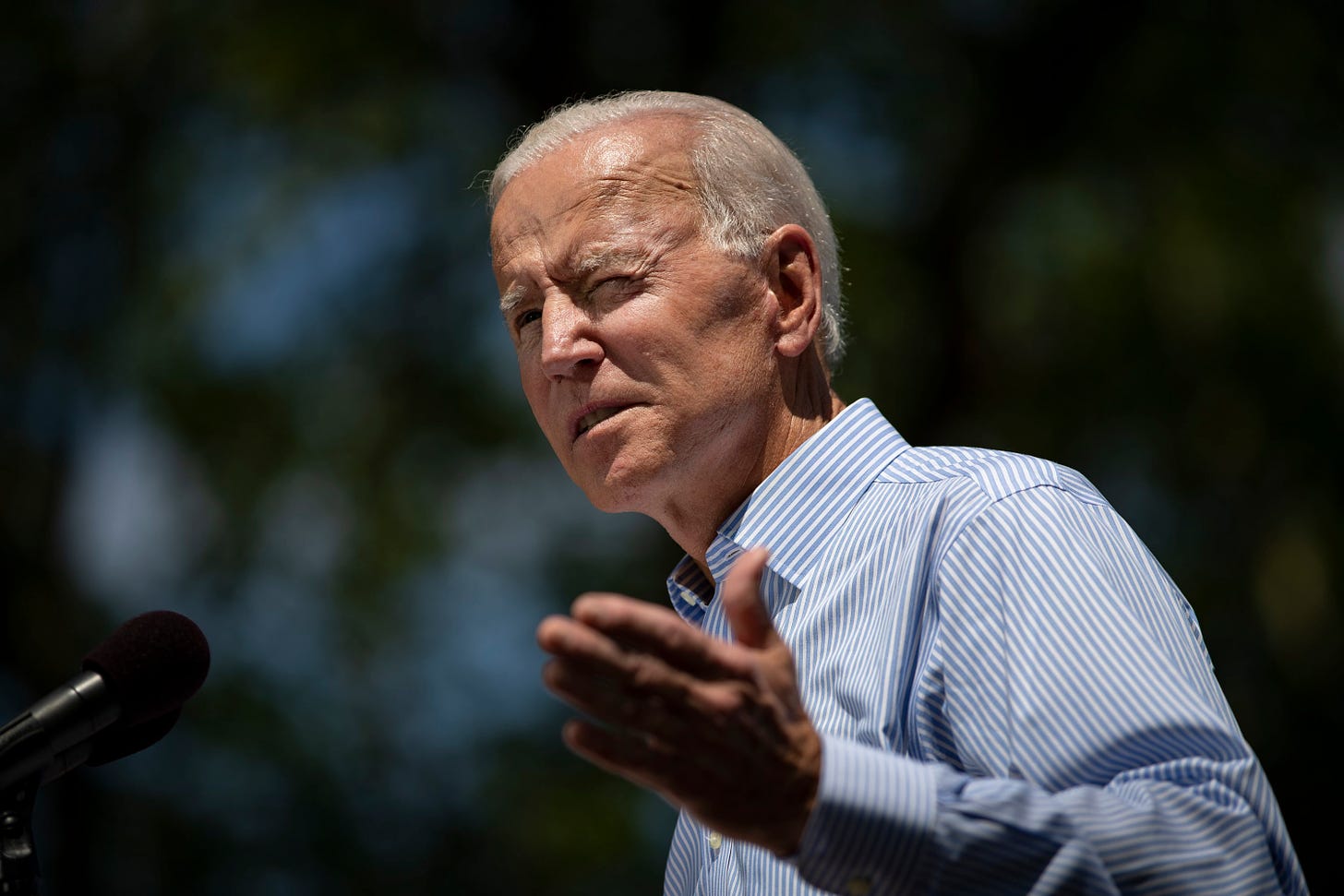What Biden's Hyde Amendment Kerfuffle Says About His Campaign
The tides are pushing all the Democratic candidates to the left in 2020. Can he resist?

Call it the first major unforced flub of the 2020 cycle. Joe Biden—putative presidential favorite, sainted moderate of the crowded and heavily progressive Democratic primary field—is only about six weeks into his campaign, but has already managed to irritate and confuse pretty much everyone by flip-flopping and then back-flipping on his support for the Hyde Amendment, the 1976 law banning federal funding for abortions.
During his long career as a legislator, Biden, a Roman Catholic, frequently voted to uphold the Hyde Amendment, including voting several times against efforts to loosen its restrictions. But he seemingly reversed course during an event last month when an ACLU activist asked whether he would commit to repealing Hyde if he were elected president. “Right now it has to be—it can’t stay,” Biden responded.
Now, almost a month later, Biden’s campaign is insisting the whole exchange was a mistake. “Biden misheard the woman on the rope line and thought she was referring to the Mexico City rule,” his campaign said in a statement released Wednesday. (The Mexico City rule forbids U.S. foreign aid from going to organizations that perform abortions.)
“He supports the repeal of the Mexico City rule because it prevents critical aid from going to organizations even if abortion is a very small fraction of the work they are doing,” the statement continued. “He has not at this point changed his position on the Hyde Amendment.”
From the perspective of one alarmed by the Democratic party’s mad lurch to the left, this is of course welcome news. A sizable majority of Americans oppose allowing Medicaid to fund abortions, and it’s good to know there are Democrats who recognize that. There’s also a strong argument that there’s political utility for Biden here: He wants to brand himself as a moderate, and with the rest of the 2020 crowd falling all over themselves to outdo each other on abortion radicalism, he has the opportunity to keep that lane all to himself.
But it’s impossible to argue the campaign didn’t botch the hand-off here. Biden’s comments were widely reported and dissected. For the campaign to come back now—a full month later!—and claim the whole thing was just a simple misunderstanding beggars belief. What is far more likely is that Biden’s team, unsure at first of how to proceed, decided belatedly that abandoning support for Hyde was a misstep, and went for the mulligan.
The whole situation underscores Biden’s biggest liability in what promises to be a harrowingly cutthroat primary: He knows he wants to come across as a moderate, but the rapidly shifting grounds of party politics have left him unsure exactly what that means these days.
It’s the same problem Hillary Clinton had in 2016: by simply trying to imagine what a faceless median center-left voter would want and modeling her campaign around that, Hillary came across as insubstantial, overly focus-tested, overly obliging, a person without a reason to run for president except a hunger for power. Hillary was lucky; her only serious challenger was a cranky old socialist from Vermont. Yet even he nearly managed to topple her in the primary.
This year, the competition will be substantially fiercer, the margin for error smaller still. If Biden doesn’t figure out who he is fast, his current comfortable lead in the polls may not carry him as far as many seem to think.




